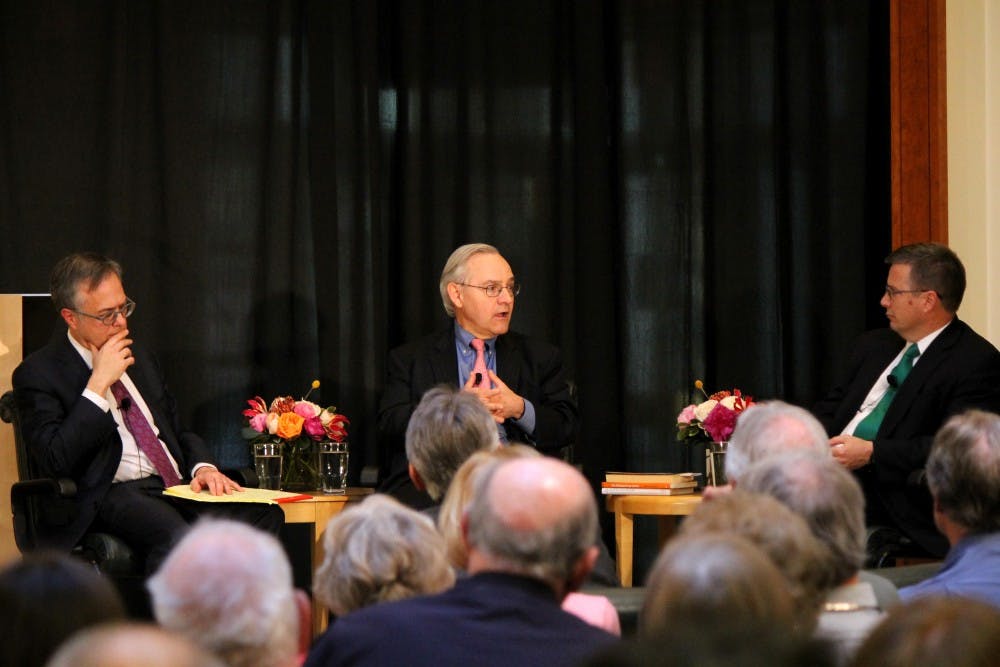Political columnists Michael Gerson and EJ Dionne reflected on the polarization of politics Tuesday night at the Sanford School of Public Policy.
Gerson, a former speechwriter for President George W. Bush, and Dionne, a former political reporter for the Washington Post and the New York Times, discussed how the public and the political establishment in America have “sorted” themselves into increasingly exclusive ideological camps. The speakers noted that members of different political parties interact with and resemble each other less and less. The discussion also explored how social and political institutions have driven polarization and how those same institutions might heal the partisan divide.
“You have two parties where no one in those parties can see anyone in the other party that looks and thinks like they do,” Gerson said.
Dionne and Gerson emphasized the increasing polarization of political parties not only on ideological lines, but also along cultural and regional boundaries. They noted that this has led to heated debates over issues that were previously areas of agreement.
“My concern with that is that it tends to turn every issue into a culture war debate, no matter what it is," Dionne said.
Both Dionne and Gerson generally agreed that the Republican Party is currently more ideologically uniform than the Democratic Party. Gerson noted, however, that the Democratic Party appears to be polarizing at a faster rate than the Republican Party.
He also explained that the growth of conservative movements outside the Republican Party has made it harder for moderates within the party. Gerson said that while there are members of the Republican Party that want to reform government, there is also a significant wing of the party which dismisses the role of government in society.
“We have the emergence of an ideological movement that has an apocalyptic tone, that America is very much on the verge of collapse,” Gerson said. “They have adopted an ideology—a rather lazy ideology—called ‘Constitutionalism’ which essentially rules out the New Deal and the Great Society and all the modern purposes of government. That’s a very simple ideological approach and it’s not an adequate one for modern government.”
Dionne noted that some Republicans have now started to focus on inequality, which may lead to more centrist policies from the party.
“We have started to focus on the costs of the long rise of inequality,” Dionne said. ”At least Republicans are now giving some lip service to these problems.”
Dionne and Gerson both said that Republicans who acknowledge the role of government in creating equal opportunity and Democrats who acknowledge the role of families in creating social stability stand the best chance of reducing political polarization.
“Equality of opportunity is not a natural state. It is a social condition that is developed—consciously developed—through educational institutions, working communities and economic policies,” Gerson said. “We’re not achieving that for maybe a third of the American workforce, who now don’t have the skills and human capital to compete in the modern economy. It’s a fundamental challenge to the definition of the American experiment.”
Get The Chronicle straight to your inbox
Signup for our weekly newsletter. Cancel at any time.

